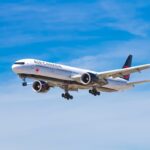The National Transportation Safety Board of the United States has issued an urgent safety warning over certain engines that power Boeing and Airbus passenger aircraft, including the Boeing 737 Max. The warnings have been issued over engines that lead to a possibility of smoke entering the aircraft if damaged.

Issues found with CFM International LEAP-1B engines
The issues have been found with the CFM International LEAP-1B engines. These engines are fitted in Boeing 737 Max narrow-body passenger planes as well as certain Airbus A320neo versions.
The NTSB has also recommended the evaluation of LEAP-1A and -1C engines for the same issue.
In terms of the exact issue, the safety board found that a safety feature in the engine called the engine load reduction device, or LRD, could lead to damaging the engine oil system in certain cases. The LRD is a safety mechanism intended to minimise the impact of vibrations from a malfunctioning engine on the aircraft’s structure. But in case that it damages the oil system, it can lead to smoke emitting from the hot oil to enter the cockpit or the passenger cabin through the ventilation system.

Safety warning follows incidents with Southwest Airlines
The safety recommendation follows two separate Southwest Airlines incidents where a bird hit led to engine damage and consequently, smoke entered the passenger cabin.
The safety board was investigating an incident with the airline in December 2023 where a bird was sucked into the left engine of a Southwest Airlines Boeing 737-8 after its departure from New Orleans, Louisiana. The crew described “acrid white smoke” entering the flight deck. It was so thick that the captain was having difficulty seeing the instrument panel. The aircraft landed safely back in New Orleans, and no passengers were injured.
In a separate incident in March 2023, another Southwest flight faced engine damage and consequent smoke after a bird hit, shortly after flying from Havana in Cuba. The flight returned to Havana safely following a declaration of emergency. No further damage was caused.

NTSB flags issues to regulators
The safety board has forwarded these safety recommendations to regulators in the United States, Europe and China.
The NTSB, in its official press release, said:
“Concerned that flight crews operating these airplanes may not be fully aware of the potential hazard of an LRD smoke-related event along with the appropriate mitigation actions, the NTSB issued an urgent safety recommendation to the Federal Aviation Administration asking the agency to ensure that operators inform flight crews of airplanes equipped with the affected engines.”
It added:
“Boeing has revised flight manuals for pilots detailing the steps to take to prevent smoke from entering the cockpit or cabin following an LRD activation.”
Apart from the FAA, the NTSB has also alerted the European Union Aviation Safety Agency (EASA) and the Civil Aviation Administration of China of the issue. The regulators will also decide if the other versions of the CFM LEAP engine need to be inspected for potential issues.
The engines that are currently affected need software modifications by CFM and Boeing. The NTSB also asked the FAA and EASA to mandate affected operators to incorporate these updates.
GE Aerospace, in a statement to CNN, has said that it has made the necessary modifications that align with NTSB recommendations.
What do you think about the issues and the recommendations? Do share your thoughts in the comments!









